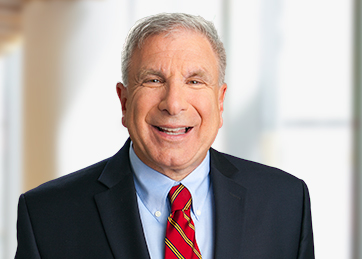Will Changes in Medicare Part B Drug Prescribing Cut Costs?
The new Medicare Part B drug prescribing program is seeking to find ways to incentivize physicians to assign the most effective, high quality medication.

- The Centers for Medicare & Medicaid Services announced last week that new healthcare payment models would be utilized in Medicare Part B drug prescribing practices. These innovative reimbursement strategies are expected to bring down the costs of medication use and bring more focus on value-based care.

The new Medicare Part B drug prescribing program is seeking to find ways to incentivize physicians to assign the most effective, high quality medication. HealthPayerIntelligence.com spoke to Dr. Bill Bithoney and Dr. David Friend, who are both Managing Directors of BDO’s Center for Healthcare Excellence & Innovation, about the changes taking place in Medicare Part B.
HealthPayerIntelligence.com: How will the new CMS Medicare Part B drug prescribing practices influence the cost of medication and general healthcare spending?
Dr. Bill Bithoney: “In the past, Medicare theoretically got a good deal because they paid 95 percent of the average wholesale price plus the add-on. What happened in reality was that Medicare was boondoggled, if you will, by Pharma because Pharma could simply, at will, raise their average wholesale price for their medications. Witness Martin Shkreli and we all know what he did.”
“Witness Valeant that purchased medications as recently as a few months ago and they raised their prices 500 percent and 200 percent – just not 5,000 percent like Shkreli. Obviously, since Medicare could not negotiate but rather could get a 95 percent average wholesale price, they could easily be taken advantage of by simply raising the average wholesale price.”
“People have been against Medicare negotiating prices in the past because they assumed that we do the exact same thing – let Medicare negotiate price based on the average wholesale cost and, therefore, it would work as badly as it does now.”
“It’s not clear what would happen. If it’s done the old-fashioned way, that certainly won’t work. If it’s done in a different way, it could well work. What CMS is doing and is able to do theoretically is to reach a mutual agreement with drug companies as opposed to negotiate. I don’t know how subtle or fine that line is.”
“The proposal is that they can enter into consensual arrangements about how much Medicare will pay. Getting this on the radar of CMS is incredibly important and also looking at value-based pricing in using the model is vital.”
“Getting a rebate if the drug doesn’t work as well as expected is a wonderful thing. Some people have said that physicians – especially oncologists – will get around these areas by simply breaking up their drug dosages and giving the medication in extra doses to get extra fees.”
“One study showed that, in indication-based pricing, a cancer drug for metastatic breast cancer may be excellent for this cancer and they devised a cost-per-year of life gained. That breast cancer drug may also be active against pancreatic cancer and when it’s used in pancreatic cancer though, it doesn’t result in the same increase in quality of life. In breast cancer, it may gain a certain number of years and cost $145,000 per year of life gained and in pancreatic cancer, it might cost $220,000 per year of life gained.”
“The proposal from the American Society of Clinical Oncology is that the drug pricing vary by how effective and efficient it is on the diagnosis for which it’s being used.”
 Dr. David Friend: “If you’re familiar with Medicare, it is very effective at negotiating prices of other things. If you go to the hospital or skilled nursing facility, they tend to pay a price that is often substantially less than the commercial payers. They speak softly but they have a big stick.”
Dr. David Friend: “If you’re familiar with Medicare, it is very effective at negotiating prices of other things. If you go to the hospital or skilled nursing facility, they tend to pay a price that is often substantially less than the commercial payers. They speak softly but they have a big stick.”
“Most people assumed, when they used the word wholesale price that Medicare was getting a deal. You can see the behavior of some of the companies and how they took advantage of that. The spirit of the situation was always that Medicare was going to get a better price than the commercial side.”
“I think you’re going to see smart people not want to be in conflict with CMS on drugs. That will be a losing strategy for the drug companies. The poster child was Valeant. I think you’re going to see more people become responsible quickly.”
“This conversation, while maybe not legislatively driven, is going to be driven because of the contingencies of business and the implied problem of being singled out as an abuser. You don’t want that. It’s not good for your stock anymore. I think there’s been a real shift in this price raising game.”
“It’s eminently more logical to pay for drugs based on their actual outcomes and I think this will also propel us to start moving in that direction. It’s not only the legislation but it’s also what happened in the marketplace that will really change people’s behavior profoundly.”
HealthPayerIntelligence.com: Do you think Congress should allow the Medicare program to negotiate drug pricing? Would this stabilize rising healthcare costs?
Dr. David Friend: “I think they’re doing it through a backdoor. I know there’s a law that says they can’t directly negotiate, but in point of fact, they are. If we move to a bundled payment, for example, that will be negotiating.”
“In theory, the Congress of the United States should not be setting prices. There’s no other part of the economy that’s had this happen. We haven’t had wage price control since Nixon in the 1960s and it really failed. As a matter of policy, the US tried wage price control under the Republicans in the ‘60s and it didn’t end well.”
“I think what’s really happening is that we’re moving to bundling, moving to indication-based pricing, or pricing based on rebates if it doesn’t work or providers get a free trial. Pricing is really a market mechanism that describes how much innovation you have, how much competition you have, and what kind of regulation you have. When you take those three things that’s how you end up with a price on anything you buy in our capitalist economy.”
“Really, the areas that Congress should focus on is good regulation – like the patent system – competition – especially on generics, and we also know we want better innovation on cancer drugs, stem cell drugs, and better immunology. We need to foster an environment that people can get returns on investment to stimulate innovation.”
 Dr. Bill Bithoney: “Industry is moving toward making calculations and trying to price drugs based on how much it costs to develop them. They always say that they put in so much research time. Well, how much did it really cost?”
Dr. Bill Bithoney: “Industry is moving toward making calculations and trying to price drugs based on how much it costs to develop them. They always say that they put in so much research time. Well, how much did it really cost?”
“So far, some of the calculations we saw published are quite suspect but it’s an interesting way of going. For instance, I recently saw a drug company hired an academic institution. They used the cost of money over 10 years and said that the money they invested to devise a new drug – half a billion dollars – should be charged at 10 percent interest a year because that’s what they’re losing on that money.”
“Of course, interest rates are nowhere near 10 percent but they did the calculations showing the money that the drug company lost in research. I think this thing that we’re talking about today is just one more attempt at value-based purchasing and the Pharmas are pushing back trying to develop models that fight the indication-based pricing and get them some recompense for their years of research.”
“I think that acceptable calculations will probably occur. They might be allowed to claim that it cost them an interest amount of 2 or 3 percent.”
HealthPayerIntelligence.com: Would tying positive patient outcomes to drug prescribing practices reduce the costs of medication? Or would it cut costs in other ways?
Dr. David Friend: “We want to get people the right medicine at the right time to help them. That’s logical. We know that something like 50 percent of the prescriptions are not even filled. That’s a colossal problem. If you don’t take your diabetes medicine, you spend a lot more on hospitalizations and all the debilitating impacts. Even though, society might spend more on their insulin if patients take it, we may save $2 million because patients don’t have hospitalizations and all the issues of being an untreated diabetic.”
“The question isn’t should we spend $10 more on the insulin. The question is how do we reduce the overall cost of care and how do we improve the overall quality of life and how do we make sure that drugs are a part of that?”
“We want people to take the medicines they need. If statins can prevent people from having heart disease and dying early, that’s a wonderful thing. We don’t have a smart way now to value statins based on outcomes and patient satisfaction versus if they don’t take it or take the wrong medicine.”
“If your quality of life can be improved and you live longer, shouldn’t we do everything we can to foster that particularly when it actually net saves society money?”
Dr. Bill Bithoney: “The American Society of Clinical Oncology actually went through and published how much it costs per quality-adjusted life years. This is another potential way of pricing medications based on how effective they are.”
HealthPayerIntelligence.com: How is the current focus on value-based care among payers and CMS affecting the pharmaceutical industry?
Dr. Bill Bithoney: “Pharma has been looking at ways to reduce pricing such as value-based pricing, indication-based pricing, and quality of year in life pricing. The Novartis-Aetna-Cigna deal has a lot of pressure and I think that ultimately the price of medicine will come down and be more reasonable based on this, as we explore how a free market based in rational healthcare consumption can improve lifespan and health.”
Dr. David Friend: “The rational free market is important while at the same time trying to provide quality of care. I think it’s not just the drug companies. It’s every vendor within the healthcare system – they’re really having to rethink this.”
